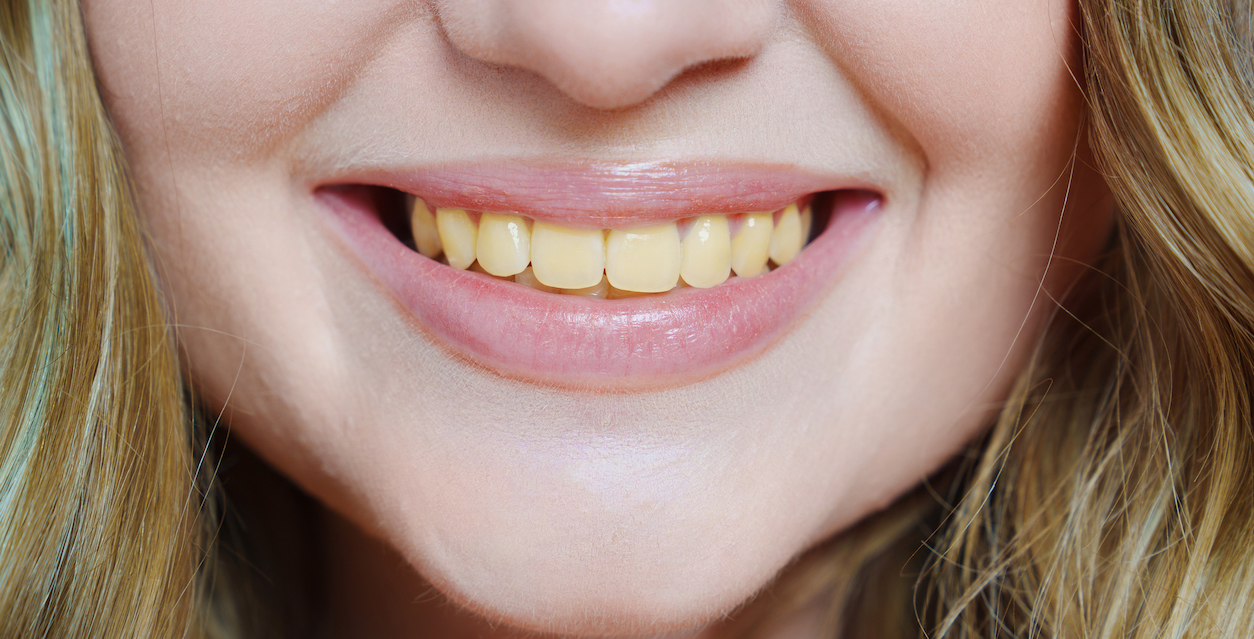Why Are My Teeth Yellow?
Discoloured and yellow teeth are not necessarily a sign of a dental issue, but they may be a reason a person chooses not to smile openly. Improving the colour of your smile can be done using over-the-counter products or seeing a dental specialist for a polish and whitening. To get a white smile, it is important to consider what you eat and drink daily. Here are just a few common reasons why your teeth may be turning yellow.
1. Genetics & Aging
Sometimes it’s just down to who your mum and dad are. If your mum or dad’s teeth are a particular colour, chances are yours will likely be similar. As we age, the natural and transparent enamel wears down and thins, showing more of the yellow dentine underneath.
2. Smoking
A smoking habit has no benefits, and one of the visible downsides is how nicotine turns the surfaces of the teeth a yellow or brownish colour. Yet another reason to kick the habit.
3. Food & Drink
Foods with a strong natural colour or tannins are common culprits to staining teeth and making them appear more yellow. These pigments cling to the surface of the tooth enamel and cause the yellow tinge. Dark and light soft drinks with artificial flavourings are also common culprits. Other types of food and drink that stain teeth include:
- Tea
- Coffee
- Wine
- Soft drinks
- Dark fruits
- Curry spices
4. Dental Injury
Injury or bad habits such as tooth grinding can cause the teeth to darken. Trauma to the teeth can change a tooth’s interior. If the dentin or pulp starts to die the colour of the teeth can dramatically change to a dark colour. Root canal treatment can also cause discolouration of teeth.
Grinding (or bruxism) is a habit that also damages the teeth. Some people do it unconsciously, especially whilst they sleep. Over time, it can be harmful to your enamel, weakening it to the point of cracking or yellowing.
5. Medication.
Tetracycline antibiotics can stain teeth whilst they are developing in the gums before the age of eight. Hence, pregnant mothers should avoid tetracycline during the last half of their pregnancy. Children under eight should also avoid such antibiotics to prevent staining whilst their teeth are developing. Other medications that may affect tooth colour are:
- Antidepressants
- Antihistamines
- Antipsychotics
- High blood pressure medication
- Certain mouthwashes
How to Prevent Tooth Discolouration
Before you look to whiten your teeth, you should address the habits or lifestyle choices that are causing the yellowing/staining of your teeth in the first place. Otherwise, the problem is likely to return. So, solutions include:
- Improve oral hygiene and cleaning regime.
- Avoid foods and drink that stain your teeth.
- Drink liquids that aren’t water through a straw (where possible).
- Avoid sugary food and drink.
- Quit smoking.
- Mouth guard for those that grind their teeth.
Teeth Whitening
Teeth whitening is a treatment that addresses yellowing and discolouration of the teeth. It involves using a special bleaching gel that when applied to the teeth, can brighten and whiten their colour.
Dentists are the only ones who should be applying any high concentration of bleach. Therefore, err on the side of caution with off-the-shelf products, especially those being marketed solely on social media.
Teeth whitening is not a permanent solution, and the results will fade over time, but with regular check-ups and lifestyle changes, the results will last longer each time.
Cosmetic Dentistry Specialists
If you have any concerns about the colour of your teeth, speak to your dentist. If you would like a second opinion or to speak with a cosmetic dentistry specialist at Western Prosthodontic Centre, call us on (08) 9321 1632 or contact us online.

